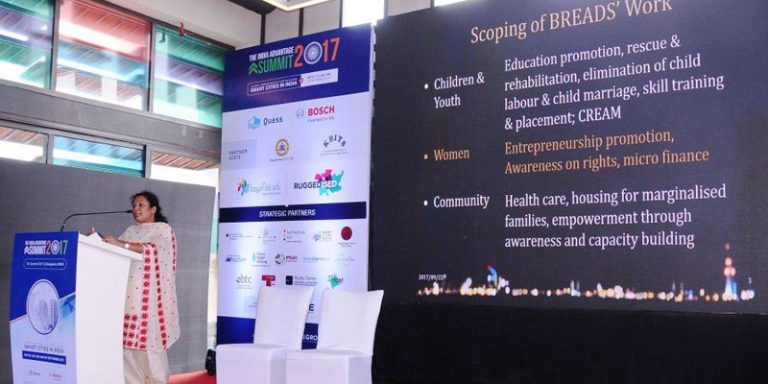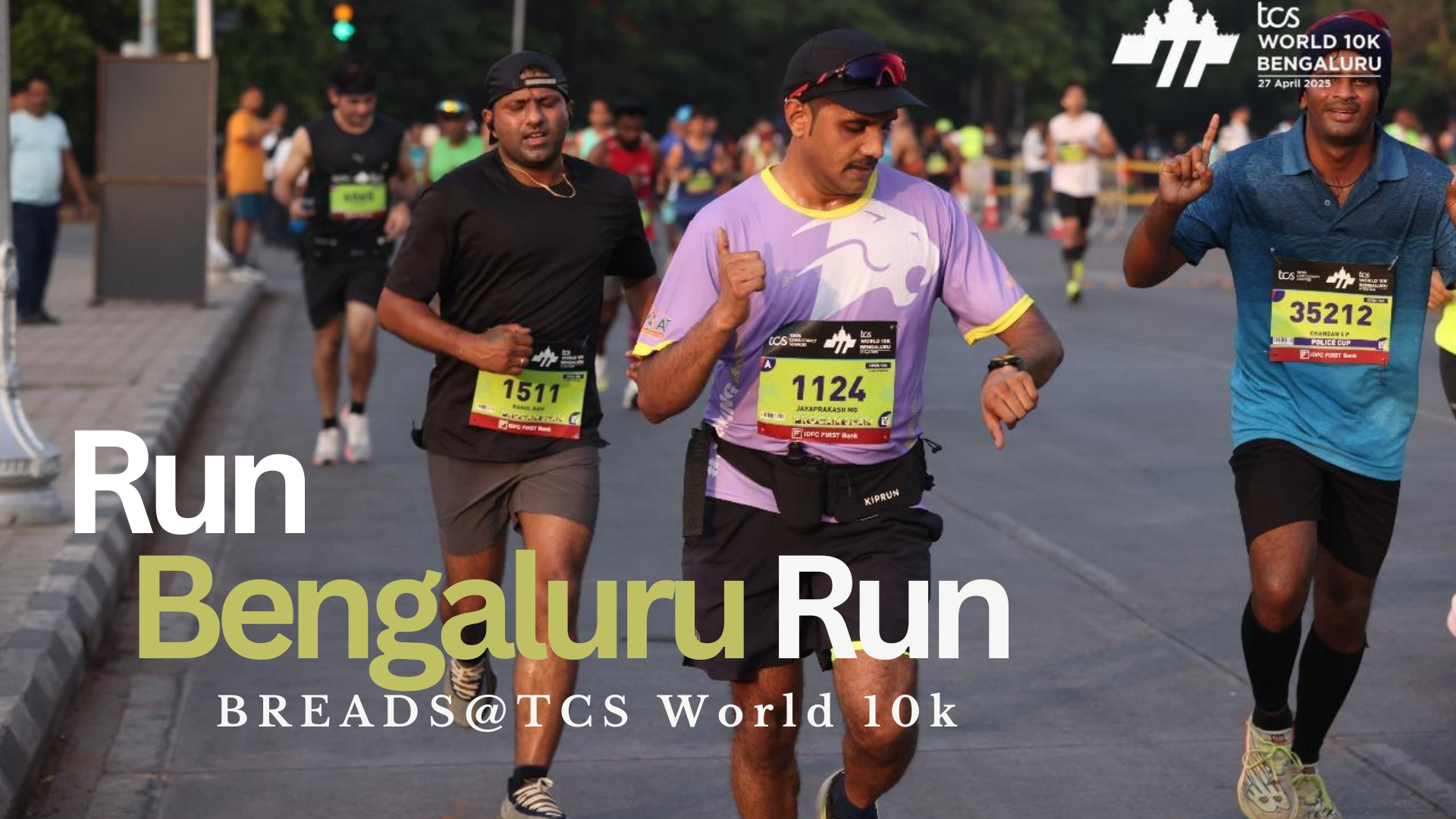The India Advantage Summit 2017 organised by Integro Infotech and Consulting firm in Bangalore at the North Terrace on 21st and 22nd September, was a unique platform created to bring key stakeholders – representatives from state machinery, various industries, professors from universities in India and abroad, real estate development firms, urban planners, architects and other leaders who were potential participants in the building of Smart Cities in India. Incubation centres for start-ups/social enterprises and non-profit organisations were also invited to emphasise the equity perspective that must and could be incorporated within the agenda of smart cities mission.
BREADS Bangalore, with its long, wide experience in restoring the rights of the marginalised in Kerala and Karnataka since 1995, was invited as a panellist for the thematic module ‘inclusive smart cities’. Four other panels were based on the themes connectivity, sustainability, security and innovation. As a panellist introducing the significance of social inclusion and equity within the purview of smart cities mission, BREADS endeavoured to throw light on some of its key, city/state wide initiatives like the street presence projects, Missing Child Bureau, formal and non-formal skill training for youth and the recent pilot – Migrant Desk in Trivandrum. These initiatives have successfully demonstrated the potential of multi layered approaches that not only benefit the target groups but also institutionalise a set up that intersects already available benefits from social welfare schemes and the steps from our end, that have effectively filled the gaps in reaching out to the most vulnerable, consistently and effectively.
Coming as a blessing, the liberty to visualize the idea of smartness by of the chosen cities has let them identify their respective priorities. Within this framework, BREADS suggested that including social objectives could go a long way in complementing the lives of the marginalized. The idea of social infrastructure for instance, could be furthered to accommodate the interests of illiterates and drop outs in education so that they also get to work up the social ladder. Street children, for instance do not have access to any form of health care nor do they have access to portable drinking water. Their exclusion from the milieu of development in health care could be addressed by inventing new models of health care that cater exclusively to the most vulnerable.
Responding to concerns and clarifications from an audience overwhelmingly focusing on technological innovations, with little representation from civil society that has worked on social innovation, BREADS emphasized the need to bring them all on a single interface. This, from our experience, we strongly feel, is feasible and has the potential to build socially inclusive cities that have room for every resident – be it a new entrant from any class or an abandoned resident of any age group. Through this summit, a beginning has been made by interacting with new companies, start-ups and consultants who wanted to know more about how BREADS strategized it’s objectives.





